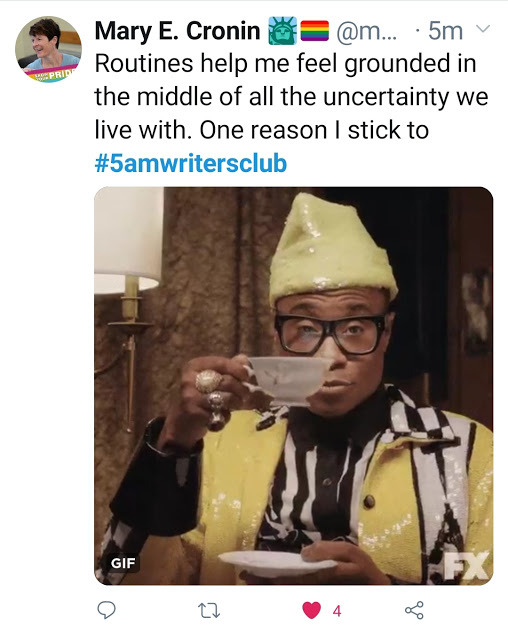#snooze safely this is a pro-sleeping blog
Explore tagged Tumblr posts
Note
i want to drown u in lov e and attention but i going to go back to bed (early bedtime isnt that crazy....) so i will jurt lay right down here in ur inbox vov
awww okay <33 rest well i will get you a little blanket
4 notes
·
View notes
Text
15 Vidéos Hilarantes à Propos De Reveil Nocturne Bebe

These are typically problems that a lot of new mothers and fathers wrestle with. Since the indicating goes: "Anyone who suggests they sleep like a child never ever had just one." I keep in mind my worries with my 1st Kid's snooze complications. Throughout the initially calendar year, it absolutely was rare which i bought even three-4 hrs of uninterrupted snooze!
The "family members mattress" is supported by some wellness treatment and relatives experts as being a natural, loved ones-helpful solution to take care of these challenges. It might be convenient, Specially with breastfeeding newborns, to easily let them drift off to slumber once they complete nursing. It could also market a healthier bond among father or mother and little one, as pores and skin-to-pores and skin contact has become demonstrated to get very important for wholesome infant enhancement. On the other hand, not Every person agrees that sharing a mattress with your child is a good suggestion. Many Other people feel that it can be crucial for children to master to sleep in their particular beds from an early age In order to promote a differentiation amongst adult and little one Room and to avoid slumber troubles in a while.
In case you are asking yourself In the event the loved ones mattress is a good idea for you personally, consider these feelings:
Pros
one. It is extremely easy to maintain a spouse and children bed when your son or daughter is breastfed. In the event the infant wakes up hungry, you don't need to get up while in the midnight to feed your child.
2. Should you find that receiving out of bed to tranquil a cranky little one is getting the best of you, seeking the loved ones bed might make it easier to get much more relaxation.
three. No extra altering crib sheets - continue to keep a towel or blanket less than your newborn inside your bed.
4. Your infant will feel safe and heat, and you will be able to soothe him promptly ahead of he totally awakes.
5. It could be comforting to learn your son or daughter is Harmless beside you.
Cons
1. Several parents worry that they're going to roll around on their boy or girl in the course of the night, and Therefore do not sleep deeply.
2. It is actually harder to keep up an intimate intercourse daily life.
three. Your husband or wife or partner could oppose the idea, bringing about arguments or resentment.
four. Several mom and dad and professionals think that it is necessary for a kid to possess his personal Room to rest to advertise independence and family boundaries.
five. Your child might have difficulty slipping asleep when you find yourself not there, such as a vacation away or an ailment.
six. Your son or daughter could have issues transitioning to her personal mattress when she is older.
You may be able to visualize your personal pros and cons. There is absolutely no right or wrong way to deal with this difficulty. One of the best ways is to carry out what works for you, your spouse and your child.
If both you and your partner disagree to the loved ones mattress, use this informative article as being a springboard to debate it brazenly. Listen to your companion's sights, state yours simply just, with out defensiveness, and hunt for a compromise. Most likely you can start out for a time period utilizing the relatives mattress, then switch the kid to the crib at a certain date or age. Or you could possibly begin the evening While using the relatives bed, after which you can shift the child to his own https://www.openlearning.com/u/cassi-qfoal1/blog/7TendancesQueVousAvezPeutetreManquees/ bed during the night
As being a spouse and children therapist and also a seasoned parent, I do know we are inclined to around-Believe our parenting conclusions. Do not forget that irrespective of which way you end up picking, be confident that if make your parenting choices thoughtfully, you will do a very good work in increasing your child. A caring, considering, insightful mum or dad like you will very likely end up with a healthy, joyful baby. And one which sleeps in the night time. Eventually.
As the guardian of the new child, it's possible you'll start to question when your toddler will start sleeping in the night time. This can be the result of your individual sleep deprivation and desperation to at last get some slumber during the night time, or you could begin to experience strain from Those people around you who say that toddler must be sleeping from the night at a certain age. The reality is, Every single child differs and there are numerous variables that contribute to how often infant wakes at nighttime.
Despite Everything you've listened to, not all infants will slumber in the night at a certain age. There are several things that may keep a infant waking up during the night and each aspect really should be dealt with and remedied separately. You might need to simply feed and rock little one slightly excess during these instances, recognizing that they are short term conditions. Most of all, take into account that The dearth of sleep would not previous for good and infants start to sleep extended the older they get.
youtube
0 notes
Text
Zero Dark Thirty
Today on SleuthSayers blog, I posted the following (you can read the original post here):
I have a confession to make. Eleven weeks into our weird safe-at-home reality, and I've barely scratched the surface of my (admittedly) ambitious quarantine To Do list. Way back in mid-March, I had such grand plans with all the extra time on my hands. ~ Finish revising my WIP novel. ~ Draft a short story for an upcoming anthology ~ Read the TBR books that threatens to overtake my nightstand. You may even remember my debut SleuthSayers post <here> wherein I suggested several productive writerly activities. Did I listen to myself? Nope. As March blended into April, my day job commitments dwindled along with the tanking economy. I found myself with even more unstructured time available for writing. Did I tick anything off my To Do list? Double-nope. Processing the pandemic seemed all-consuming. Instead of revising, I devoured a constant stream of COVID-10 news updates. I watched in horror as New York hospitals overflowed with patients. Instead of writing, I sewed masks to donate to frontline staff who were desperate for PPE. Instead of reading, I helped my kiddos with their online schooling. Don't even get me started on Zoom-fatigue or strategizing about our family's once-per-week stealth grocery shopping adventures. Honestly, I didn't think fiction--even the dark kind we crime-hounds write about--could get any weirder than our post-apocalyptic reality. Then came the murder hornets.

Something weighed heavily on me, beyond the underlying anxiety from our crazy new normal. About a month into our quarantine, I had an ah-ha moment. I missed writing. For me, not only has writing always been my link to sanity, but it can be an escape from my day-to-day worries. Without it, I felt a little lost. But since my quarantine time seemed to be occupied from sunrise to way past sunset, how would I carve out a routine dedicated to writing?

The answer hit me in the form of my good ol' writerly friends at #5amWritersClub (a.k.a. my writing tribe). In case you're not familiar with #5amWritersClub, it's an informal support group of early-riser writers on Twitter. If these pre-dawn writers could be stereotyped, I'd say they tend to be self-deprecating coffee-aholics who cheer each other on through missed alarm clocks, writers block, life's hiccups,and of course, chasing words. How does one join #5amWritersClub?

Fortunately, it's easier than hitting snooze when your alarm goes off. This informal group works on a drop-in-when-you-can basis. Over the years, I've participated when my daily writing time vanished, usually when my kids' schools were on summer or winter breaks. Here's how:
Join Twitter. Have an account? If yes, then you're all set to roll. No? Just go ahead and setup your free account and Twitter handle. Don't forget to upload a profile photo. Need help? Step-by-step instructions can be found <here>.
Tweet. Sometime between 5am and 6am in your time zone, Tweet a check-in note. You can wish people good morning, mention your project, something motivational, or even complain about accidentally sleeping through your third alarm. No pressure, just be sure to include the hashtag #5amWritersClub in the Tweet so other group members can find you. Bonus points - add a humorous or coffee-related gif video clip to your Tweet.
Write. Log those words. This is your golden hour.
Like. Once or twice during the hour, hop back on Twitter to like other #5amWritersClub Tweets from that morning. Pro tip -- if you're new to Twitter, this is how you will find lots of other writers to follow.
Friday donuts. The group's tradition is to celebrate T.G.I.F. by sharing virtual donuts. Since the pandemic started, some members have even met virtually on Zoom on an occasional Friday.
Done. At the end of your hour, there's no need to report back or check out, but fee free to like a few more #5amWritersClub Tweets to support others in your same trenches. And don't forget, the next time zone to the West's members will be checking in behind you.

Since rejoining #5amWritersClub, I've gotten my writing mojo back. With even a few new words on the page each day, endorphins would rush through my psyche in a feel-good wave. In a world that was getting weirder by the day, writing was something I could control. I was creating again. I've even checked off one of my To Do items, drafting the new short story. Progress on several fronts! What have you been doing in our New Normal to bolster your writing?
0 notes
Text
Why Are People Freaking Out About Collagen Peptides—and What Do They Even Do?
Another day, another supplement’s taking over the internet. If you’ve been cruising around Paleo websites or following the latest beauty advice, you’ve probably seen the word "collagen" thrown around more than once. Until recently, collagen was a treasured ingredient in antiaging creams, but didn’t play a big factor in the Western supplement industry. But with collagen peptides gaining popularity, it seems time to answer the question: What exactly are collagen peptides, and even more importantly,Why should anybody care?
You might also like READ
Collagen is basically body glue.
Before we get into the ins out outs of collagen peptides, it’s good to know what collagen actually, uh, is. Collagen is a structural protein that’s found in abundance in human and animal bodies. In fact, it’s pretty much the glue that holds all our parts together. As we age, we produce less collagen, which causes loss of elasticity in your skin and all the other fun stuff that goes along with getting older.
So, the basic idea of adding more collagen to your diet sounds like a great idea. Who doesn’t want to have fewer wrinkles and less joint pain? But do these supplements really make a difference?
What are collagen peptides?
It’s not a shock that collagen peptides are a form of collagen. But it’s slightly more surprising to learn that collagen and gelatin are almost exactly the same. Yes, the new supplement craze is basically just the stuff you use to make Jell-O shots; collagen naturally occurs in all animals, and gelatin is just the processed version of this common protein, or "hydrolyzed collagen." Sadly, the high sugar content of stuff like Jell-O pretty much outweighs the benefits of the gelatin, so don’t start mainlining Jigglers in the name of good health.
The biggest difference between peptides and gelatin is how they dissolve. Collagen peptide supplements are hydrolyzed to a low molecular weight so they can be dissolved in hot or cold water and are supposedly easier to digest. Gelatin can only be dissolved in hot water (something all you Jell-O shot pros already know). Eating undissolved gelatin can be a little harsh on the stomach. Also, it’s kind of gross.
Since a hot and cold water soluble supplement is much easier to use, collagen peptides have taken off in popularity. Plus, a collagen peptide-infused smoothie sounds a lot fancier than a gelatin juice.
Why take collagen peptides?
People all over the internet have been singing the praises of bone broth for years. Why? The collagen content. But since we all can’t keep a jug of bone broth around to swig from, collagen peptide supplements have become more and more popular.
Most blogs and wellness enthusiasts claim that collagen is a good source of protein that helps increase skin elasticity and strengthens hair and nails. You’ll also find claims that it’ll help you lose weight, sleep better, fix your joints, improve digestion, heal leaky gut, and make Jesus love you. Okay, I added in the last one, but if you look at enough websites, you’d think collagen was some kind of miracle powder that cures everything except cancer and herpes.
What does it really do?
Most supplements have evangelical enthusiasts, but most of the time it’s too good to be true. So what can collagen peptides really do for us? Well, it is a good source of protein. In one scoop of peptide powder, you typically get 10 grams of protein. At 40 calories a scoop, that’s not too bad. Now, if you’re a vegetarian, watch out. Most collagen products are derived from animal bones or fish scales, so it’s not vegan safe.
You might also like READ
When it comes to skin, there is some evidence to suggest that collagen supplements really do help. One study found that skin hydration and collagen density increased after eight weeks of oral collagen supplementation. The effect of oral collagen peptide supplementation on skin moisture and the dermal collagen network: evidence from an ex vivo model and randomized, placebo-controlled clinical trials. Asserin J, Lati E, Shioya T. Journal of cosmetic dermatology, 2015, Sep.;14(4):1473-2165. Basically, collagen was considered a helpful tool in decreasing the skin’s signs of aging. Now, that’s only one study, but it’s hopeful information all the same.
What might collagen do?
The other collagen claims are a little harder to nail down. Sure, studies have been performed, but they offer contradictory results. Here are a few places where collagen might really work.
If you suffer from brittle or ever-breaking nails, there’s some evidence to suggest collagen peptides could get you the manicure of your dreams. Read anyone’s blog who’s ever taken collagen for more than a day, and they’ll insist their nails are better than ever. Some scientific studies support that claim. A German/Brazilian study found that participants taking supplements for 24 weeks had a 12 percent increase in nail growth and a 42 percent decrease in the number of broken nails. Oral supplementation with specific bioactive collagen peptides improves nail growth and reduces symptoms of brittle nails. Hexsel D, Zague V, Schunck M. Journal of cosmetic dermatology, 2017, Aug.;():1473-2165.
Before you start chugging collagen, know that this was a non-blind study with 25 participants and no placebo group. Basically, the study doesn’t mean much. Sorry to rain on your supplement parade, but the connection between collagen and nails still isn’t scientifically solid.
When it comes to joint pain, there is some evidence to suggest that collagen supplements might help your creaky bones feel a little better. A study from Penn State University found that athletes had significantly less joint pain at rest and in movement after taking collagen peptides. 24-Week study on the use of collagen hydrolysate as a dietary supplement in athletes with activity-related joint pain. Clark KL, Sebastianelli W, Flechsenhar KR. Current medical research and opinion, 2008, Apr.;24(5):1473-4877. So collagen could have the capability to ease pain, inflammation, and reduce joint damage on the whole. Sadly, we can’t officially extrapolate all of that from one 97-person study, but it shows collagen's potential in the healthy joint world.
What can’t collagen do?
There are claims that collagen can help with digestion and fix "leaky gut." The science behind the whole leaky gut phenomenon is hotly debated, with many gastrointestinal experts denying leaky gut’s existence entirely. Now, I’m not an expert, and if your health professional diagnosed you with leaky gut, feel free to take their advice. Either way, there isn’t much evidence to suggest that collagen would help with any gastro problems.
You might also like READ
Lastly, collagen won’t give you a ticket to dream town. Many holistic sites claim that collagen peptide supplements help you faller asleep faster and sleep deeper through the night. Unfortunately, there’s really nothing to suggest that it will help you snooze. Sure, if your joints are less achy because of supplements or you’re so filled with glee over your collagen-induced wrinkle-free skin, you might sleep pretty well. But don’t turn to peptides to knock you out at night.
What did collagen do for me?
I added collagen peptides to my morning smoothie for a month, so I could have some firsthand experience with the collagen craze. Was my skin transformed? Were my nails healthy and long? Did my joints feel 10 years younger? No. No to all of it. Now, I didn’t notice anything bad, but in all honesty, I noticed absolutely zero difference in my skin, hair, nails, joints, sleep, or cellulite. (A lot of folks are hawking it as an anti-cellulite cure, but... there's no real evidence.) Of course, I only tried it for a month, and I’m only one person, so just because it didn’t work with me, doesn’t mean it won’t help you out.
Will I still take collagen supplements? Weirdly, yes! I don’t get a lot of protein, and I don’t like the taste of most protein powders. But the collagen blended easily into smoothies without adding any texture or flavor whatsoever. Even in thin juices, I could never tell it was there. So, for that alone, I’m willing to keep up my collagen intake.
As far as supplements go, collagen peptides seem pretty promising. Though the science to prove its efficacy is in the early stages, there are good signs pointing toward increases in skin and joint health when you add collagen to the mix. Will it change everything overnight? Of course not. But if you’re looking for an unintrusive protein powder that might do a couple other good things for your body along the way, collagen peptides are worth a try.
Amber Petty is a freelance writer in Los Angeles who writes for Bustle, Elite Daily, Thrillist, and a lot of other random sites. If you like easy crafts and Simpsons gifs, check out her blog Half-Assed Crafts.
from Greatist RSS http://ift.tt/2gPRpiA Why Are People Freaking Out About Collagen Peptides—and What Do They Even Do? Greatist RSS from HEALTH BUZZ http://ift.tt/2gjrwab
0 notes